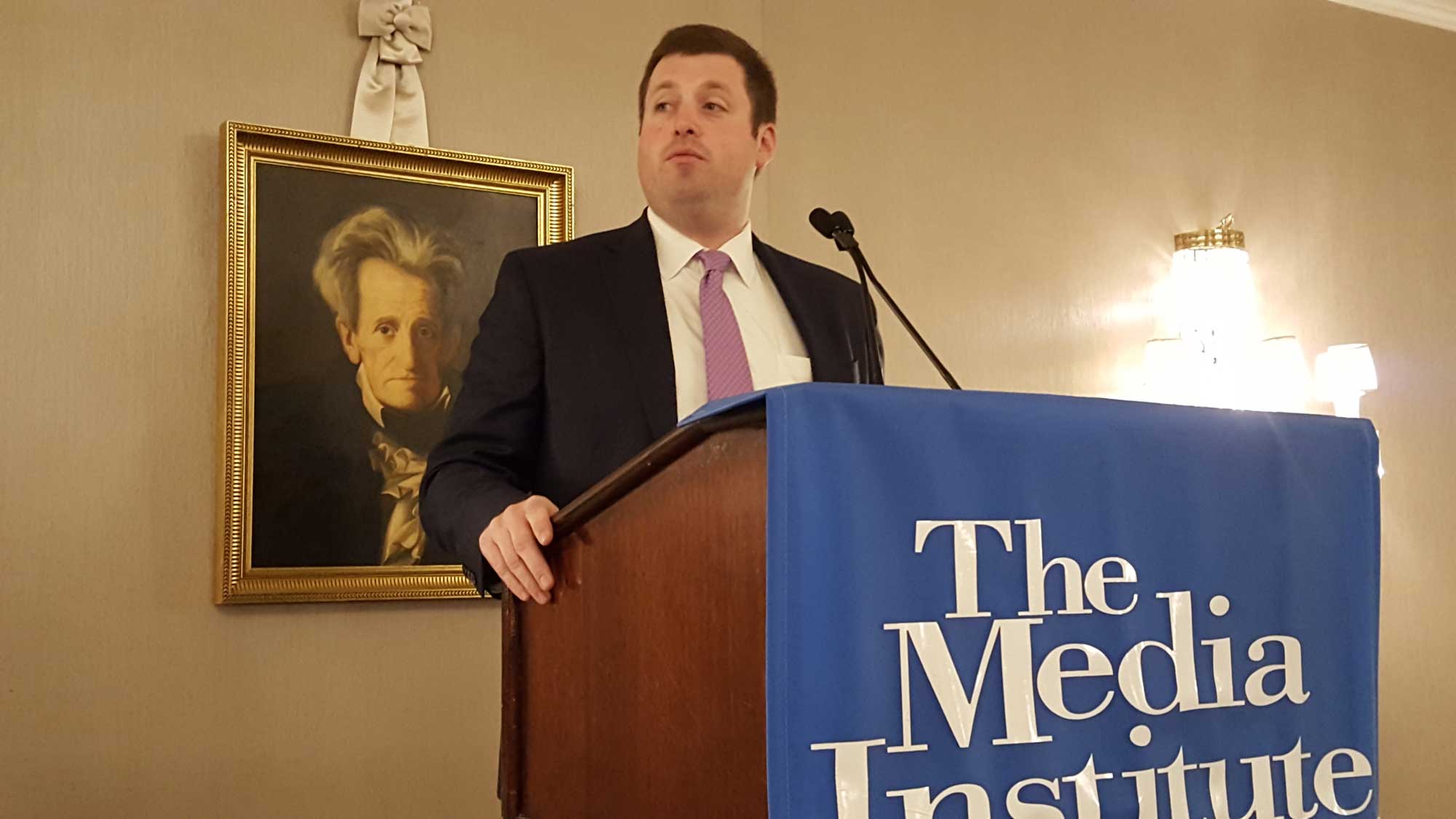Trump Top Telecom Advisor Pitches Open Internet

The smarter way to stay on top of broadcasting and cable industry. Sign up below
You are now subscribed
Your newsletter sign-up was successful
David Redl, head of the National Telecommunications & Information Administration, said that an internet that is "open, interoperable, and governed through multi-stakeholder collaboration should be the guiding principle and one worth fighting for.
That came in a speech to the Media Institute in Washington. NTIA is the chief communications policy advisor to the White House, as well as the "FCC" for government spectrum holders.
"Freedom of expression is a basic human right and a bedrock American principle," he said. "At NTIA, our approach to internet policy has this principle at its core. We are focused on protecting and promoting an open internet, advocating for the free flow of information, and strengthening the global marketplace for digital products and services."
Related: Senate CRA Vote Gets D.C. Buzzing
Obviously the "open internet" issue has been the most prominent this week with the Senate vote to repudiate the Trump Administration FCC's approach to access to U.S. content flows.
Redl said he recognized that governments around the world face security and privacy protection challenges and law enforcement issues, but that the reaction to those should not be "censorship, blocking, imposing a 'right to be forgotten,' and requiring localized data storage."
He suggested the reactions were understandable, at least in some cases, but essentially regrettable in all.
The smarter way to stay on top of broadcasting and cable industry. Sign up below
Related: Pai Signals Leased-Access Do-Over
He said as a consequence of that balkanized approach, companies with global reach wind up caught in the middle of conflicting policies and inconsistent legal demands, the result: internet users suffer.
Redel said preventing that result would take a team effort—industry, government, civil society—highlighting the benefits of global data flows and convincing the other side they outweigh the challenges.
An issue that has surfaced among calls for better broadband data is where that will be coming from.
Redl put in a plug for his agency, which recently launched a revamped BroadbandUSA website and broadband map.
"NTIA has been a leader in collecting and analyzing broadband adoption data, and using that data to develop policy. We have decades of experience analyzing broadband in the United States. We’ve seen real results from the work that our BroadbandUSA program has done cultivating relationships with state and local government officials who spend their time thinking about how to improve broadband in their states."
The Trump Administration has said closing the rural broadband digital divide a priority.
The BroadbandUSA site was first launched as part of the Obama Administration's broadband stimulus funding initiative. That stimulus funding ran out in 2015, and the FCC took over the broadband mapping info collection—it just released a new map in February. But the Trump Administration plan is to return the broadband mapping function to the NTIA.
In his opening comments. Redl gave a shoutout to Larry Irving, NTIA chief during the Clinton Administration (and who was sitting in the front row). Redl credited Irving for establishing procedures for broadband and digital diversity that have continued through two decades.
During a quick audience question session, Redl described the U.S. response to Europe's new General Data Protection Regulation (GDPR) online privacy rules that go into effect next week. In particular, Redl said that NTIA is concentrating on the internet's "Who Is" feature, which he called "an important tool for law enforcement and intellectual property holder" as well as for cybersecurity researchers, "who rely on Who Is data." He said NTIA is working with other agencies to figure out how the GDPR restrictions fit into U.S. needs.
Redl acknowledged that many federal agencies are conducting "parallel efforts" as they develop communications and security projects. He insisted that NTIA "will be bringing [these assorted approaches] together for the executive branch." In particular, he cited the "holistic view" of cybersecurity, which he said will require a "global system" of integrated efforts.
Contributing editor John Eggerton has been an editor and/or writer on media regulation, legislation and policy for over four decades, including covering the FCC, FTC, Congress, the major media trade associations, and the federal courts. In addition to Multichannel News and Broadcasting + Cable, his work has appeared in Radio World, TV Technology, TV Fax, This Week in Consumer Electronics, Variety and the Encyclopedia Britannica.

